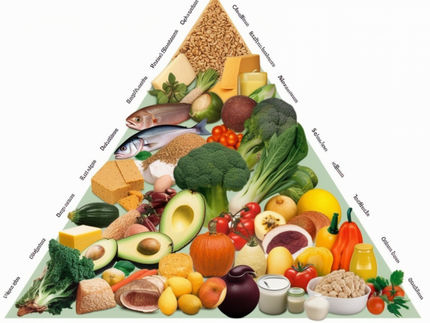The potential of plant protein
Advertisement
Plant protein has a bright future ahead of it. Major brands have begun to experiment with plant offerings to demonstrate the attractiveness of plant products to an increasingly broad consumer base. Vegetable foods are no longer niches and are beginning to form a central part of the innovation pipeline of food and beverage brands.

pixabay/annquasarano
High-protein demands are also increasing in foods, beverages and dietary supplements, reflecting consumer interest in protein as a nutrient for health and well-being. The demand for "plants" coupled with the demand for "protein" in food and beverages should provide a bright future for plant protein components. Traditional protein sources such as meat, dairy products and fish are often cited for having a much greater negative impact on the environment. Environmental concerns combined with animal welfare ethics are the main reasons why many consumers start looking for plant proteins.
Plant proteins, yes, but which ones?
Plant proteins, milk proteins and collagen (derived from a number of different animal species) are the most commonly used groups of protein components in the introduction of food, drink and dietary supplements. In recent years, milk proteins and collagen have decreased with product introductions, while plant proteins have shown a slight increase.
Grains and pulses are the preferred sources of non-traditional protein for a high percentage of German consumers (5 6% and 49% respectively). However, proteins from these sources cannot respond in all forms. Peas, for example, are a natural source of protein and are a familiar vegetable that will resonate with consumers as healthy and safe. In contrast, pea protein in concentrated or isolated form is likely to present a very different picture in consumers' minds than simple garden pea.
In Germany, only one in five (19%) of consumers believe that concentrated proteins are as appealing as whole sources of protein food. One in three (31%) of Germans believe that the ingredients added to products to make them high in protein are worrying. This shows that while proteins are attractive, more innovation and transparency are needed to ensure that consumers are fully on board.
Algae proteins for the future
Marine plants, such as algae and other algae, have long been processed by the food industry to produce additives such as agar and carrageenan, which are common in foods and beverages. Recently, increasing attention has been paid to the nutritional value of algae, including their protein content. These plants represent a promising future protein source, although further research is needed to exploit the full potential of marine plants as protein sources.
Other news from the department business & finance

Get the food & beverage industry in your inbox
By submitting this form you agree that LUMITOS AG will send you the newsletter(s) selected above by email. Your data will not be passed on to third parties. Your data will be stored and processed in accordance with our data protection regulations. LUMITOS may contact you by email for the purpose of advertising or market and opinion surveys. You can revoke your consent at any time without giving reasons to LUMITOS AG, Ernst-Augustin-Str. 2, 12489 Berlin, Germany or by e-mail at revoke@lumitos.com with effect for the future. In addition, each email contains a link to unsubscribe from the corresponding newsletter.






























































